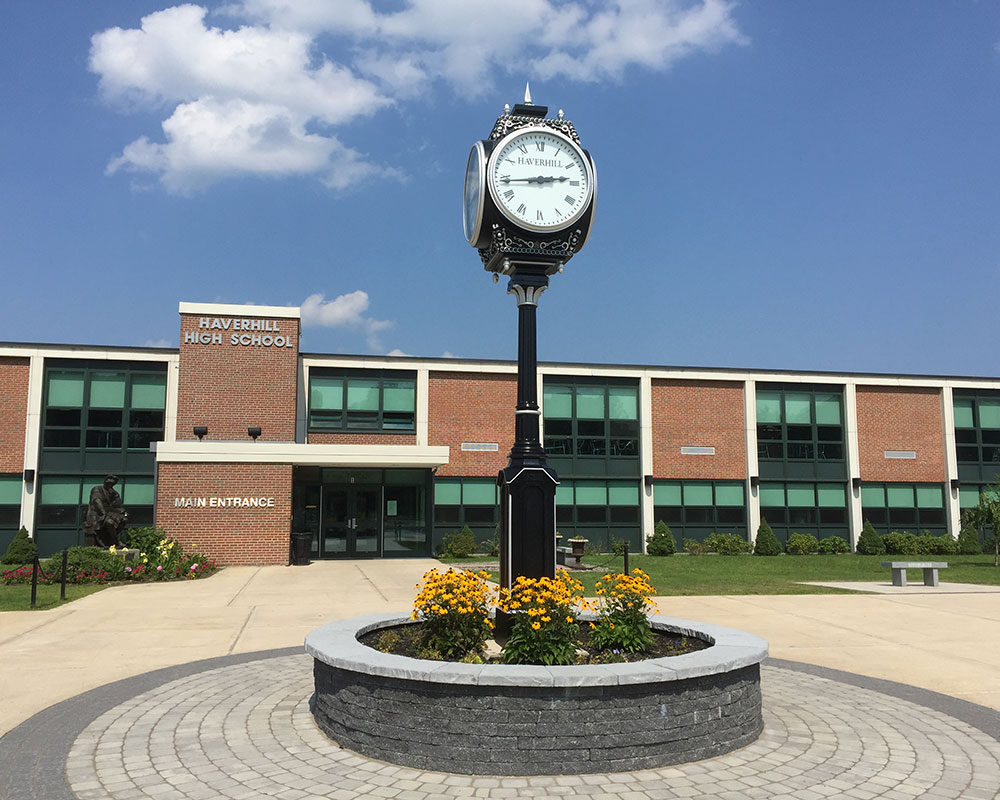Correction: A quotation attributed to School Committee member Mikaela D. Lalumiere is now properly attributed to member Jill Story.
Haverhill School Committee members asked Haverhill High School administrators last Thursday how they ensure all classes will have an adult present when the usual teacher is absent.
Member Richard J. Rosa brought up the issue after he said he received emails from concerned parents.
“I am hearing that there are classrooms where a teacher may be absent, we can’t get a sub, and there’s no coverage. And so, an entire class has no adult in the classroom. That’s very, very concerning to me,” he said. “We don’t even have to go over all the things that could go wrong because we’d be here all night.”
At the start of the discussion on unsupervised classes, Rosa pointed out “an altercation that involved two groups of students,” as Principal Michael J. Downs wrote in an email that went out last week, as another, albeit unrelated, safety issue.
Downs estimated 15 to 20 teachers of roughly 170 report they will be absent each day. Before school starts, Assistant Principal Thomas Wright creates a spreadsheet assigning staff members to each room left unsupervised, and sends it out over email.
Responding to a question from member Jill Story, Associate Principal Victoria Lu said they have staff rotate through coverage and do not repeatedly put the burden on the same people.
Story, who serves as an assistant principal in Reading, said, “There’s really no excuse for staff to not know if they have a period that they are supposed to be covering. I understand what this is like because I do coverage, and you can’t be in every classroom, you have to trust that the people who are the professionals are doing what they have to do.”
Stand-ins are sometimes waylaid by student crises, have to solve other problems or just forget to check their emails, according to Downs. Security guards and administrators who walk the halls notify the main office if they notice a class with no teacher, and sometimes students tell the teacher next door.
Lapses occur when no one reports to the main office. Rosa said it should not be the kids’ responsibility to tell administrators their teacher is missing, and he expressed skepticism the fault lay with individual staff and not the principals’ communication. Downs and Lu responded they have reminded staff about their coverage duties several times.
Downs said a state- and nationwide teacher shortage exacerbates the problem. The school has only three substitutes, and, though they technically have enough staff to fill the gaps, he said the size of the building can cause significant delays.
“If you go on MassHire right now I believe there are going to be 285,000 jobs posted,” he said. “It’s a market where not everybody wants to work at a school at this time, or nobody wants to work for a certain salary, or they want to work remotely.”
While member Paul A. Magliocchetti covered similar ground as Rosa, Story and Gail M. Sullivan gave suggestions. Story encouraged the principals to create a second method to confirm fill-ins’ availability. She said they use Microsoft Outlook at her school, and have teachers respond with a thumbs-up.
Rather than walk the halls at random, Sullivan said staff and security could focus on the areas they know may lack supervision.
